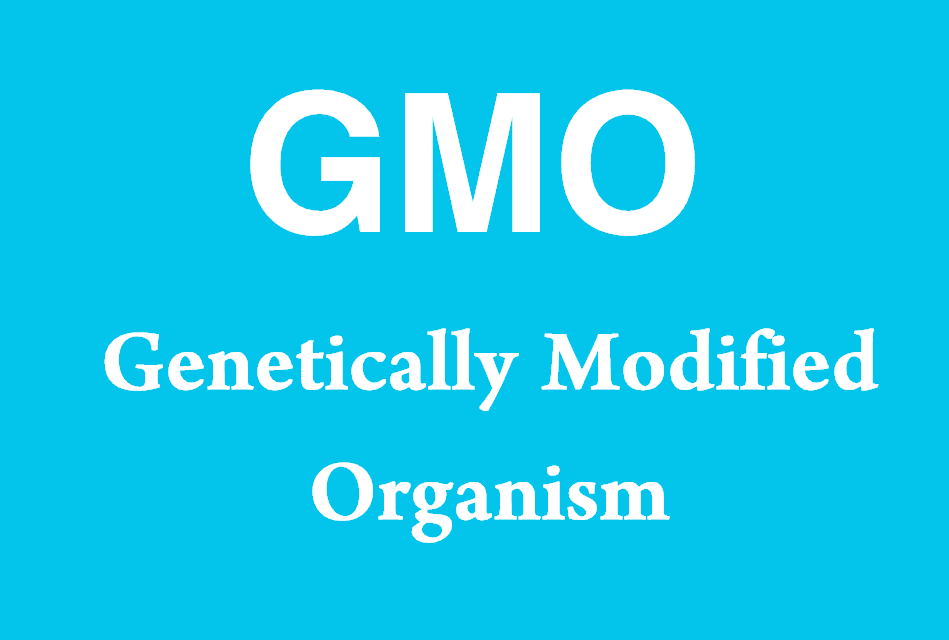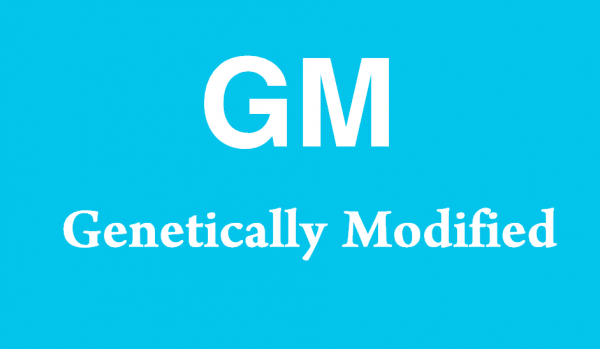What does GMO stand for?
GMO stands for Genetically Modified Organism. These are organisms whose genetic material has been altered using genetic engineering techniques to introduce new traits or enhance existing ones. GMOs are commonly used in agriculture to create crops that are resistant to pests, diseases, or environmental conditions, and in research and medicine to produce proteins, vaccines, and other products. Understanding GMOs is crucial for comprehending their impact on food production, environmental sustainability, and public health.

Comprehensive Explanation of Genetically Modified Organism
Definition and Types of GMOs
Genetically Modified Organisms (GMOs) are living organisms—plants, animals, or microorganisms—whose genetic material has been artificially manipulated through genetic engineering. This manipulation involves inserting, deleting, or altering DNA to achieve desired traits. There are several types of GMOs:
- Transgenic Organisms: These contain genes from other species.
- Cisgenic Organisms: These contain genes from the same species or a closely related one.
- Subgenic Organisms: These have altered or deleted genes within their own genome.
History and Development
The development of GMOs began in the 1970s with the advent of recombinant DNA technology. The first GMO, a bacterium producing insulin, was created in 1978. This breakthrough led to the development of GM crops in the 1980s, with the first commercial GM crop, the Flavr Savr tomato, approved in 1994. Since then, GMOs have expanded into various sectors, including agriculture, medicine, and environmental management.
Applications of GMOs
Agriculture
GMOs have revolutionized agriculture by introducing crops with enhanced traits such as:
- Pest Resistance: Crops like Bt corn produce their own insecticide, reducing the need for chemical pesticides.
- Herbicide Tolerance: Crops like Roundup Ready soybeans can withstand specific herbicides, allowing for more efficient weed control.
- Improved Nutritional Content: Golden Rice, fortified with vitamin A, addresses nutritional deficiencies in developing countries.
Medicine
In medicine, GMOs play a critical role in:
- Pharmaceutical Production: GM bacteria and yeast produce insulin, growth hormones, and other vital drugs.
- Gene Therapy: GM viruses deliver therapeutic genes to treat genetic disorders.
- Vaccine Development: GMOs are used to develop vaccines, including those for hepatitis B and the HPV vaccine.
Environmental Management
GMOs are employed in environmental management to:
- Bioremediation: GM bacteria break down pollutants in soil and water.
- Conservation: GMOs are used to protect endangered species through disease resistance and improved adaptation to environmental changes.
Benefits of GMOs
The benefits of GMOs include:
- Increased Crop Yields: Enhanced resistance to pests and diseases leads to higher agricultural productivity.
- Reduced Chemical Use: Pest-resistant crops reduce the need for chemical pesticides, lowering environmental impact.
- Nutritional Improvements: GMOs can be fortified with vitamins and minerals to address nutritional deficiencies.
- Medical Advances: GMOs facilitate the production of life-saving medications and innovative treatments.
Controversies and Concerns
Despite their benefits, GMOs are controversial due to concerns such as:
- Environmental Impact: Potential for GMOs to crossbreed with wild relatives, leading to unintended ecological consequences.
- Health Risks: Debates over the long-term health effects of consuming GMOs, though scientific consensus supports their safety.
- Ethical Issues: Concerns about the ethics of manipulating genetic material and patenting living organisms.
Regulation and Labeling
GMOs are regulated by various national and international bodies to ensure their safety for consumption and environmental impact. In the United States, the FDA, USDA, and EPA oversee GMO regulation. Labeling laws vary by country, with some requiring mandatory labeling of GMO products to inform consumers.
Future of GMOs
The future of GMOs lies in advancing technologies like CRISPR, which allows for more precise genetic modifications. Emerging applications include climate-resilient crops, new medical treatments, and sustainable industrial processes. The ongoing development of GMOs promises to address global challenges in food security, health, and environmental sustainability.
Notes to Importers
Understanding GMO’s Relevance
For importers, understanding GMOs is vital as it affects product selection, market strategy, and regulatory compliance. Importers need to be aware of the benefits and potential risks associated with GMOs, as well as consumer preferences and legal requirements in their target markets.
Market Analysis
Importers should analyze the demand for GMO and non-GMO products. While GMOs offer benefits like lower costs and higher yields, there is a growing market for non-GMO and organic products driven by consumer health and environmental concerns.
Strategic Planning
Importers can use information about GMOs to strategically plan their product offerings. For example, importing GMO crops might be advantageous in markets prioritizing cost-effectiveness and sustainability, while non-GMO products may appeal more in markets emphasizing natural and organic foods.
Risk Assessment
Understanding the risks associated with GMOs is crucial for importers. These risks include potential regulatory changes, public backlash, and supply chain disruptions. Importers should stay informed about global GMO regulations and market trends to mitigate these risks.
Trade Policies
Importers must navigate trade policies that govern GMOs. This includes adhering to labeling requirements, safety standards, and import restrictions. Staying compliant with these policies is essential to avoid legal issues and maintain market access.
Sample Sentences Using GMO
- “The GMO corn produced by the local farmers has significantly increased their crop yields and reduced pesticide use.”
- Meaning: Genetically modified corn has led to higher productivity and decreased reliance on chemical pesticides.
- “Many consumers are concerned about the potential health effects of consuming GMO foods, despite scientific evidence supporting their safety.”
- Meaning: There is public apprehension about GMOs, even though research generally indicates they are safe to eat.
- “GMO insulin has revolutionized diabetes treatment, making it more affordable and accessible to patients worldwide.”
- Meaning: Genetically engineered insulin has improved the management of diabetes by reducing costs and increasing availability.
- “Environmentalists worry that GMO crops may negatively impact biodiversity by crossbreeding with wild plants.”
- Meaning: There are concerns that genetically modified crops could harm natural ecosystems by interbreeding with native species.
- “The government has implemented strict labeling laws for GMO products to ensure consumers are informed about what they are buying.”
- Meaning: Authorities have established regulations requiring clear labeling of genetically modified products to inform buyers.
Other Meanings of GMO
| Acronym | Full Form | Description |
|---|---|---|
| GMO | Genetically Modified Organism | Organisms with altered genetic material through genetic engineering. |
| GMO | General Medical Officer | A medical officer responsible for general medical care in an organization or institution. |
| GMO | Global Marketing Organization | A body responsible for overseeing global marketing strategies and initiatives. |
| GMO | Global Management Office | An office that manages and coordinates global operations for multinational companies. |
| GMO | Government Medical Officer | A medical professional employed by the government to oversee public health initiatives. |
| GMO | Global Mobility Officer | An official responsible for managing the international movement of employees in a company. |
| GMO | General Maintenance Order | A directive for the routine maintenance of equipment or facilities. |
| GMO | Group Medical Officer | A senior medical professional responsible for a group of medical practitioners. |
| GMO | Global Maritime Organization | An international body focused on maritime safety and regulations. |
| GMO | General Management Organization | An entity overseeing the general management functions within a corporation. |
| GMO | Genetically Modified Organism | Organisms with altered genetic material through genetic engineering. |
| GMO | General Maintenance Order | A directive for the routine maintenance of equipment or facilities. |
| GMO | Government Management Office | An office that handles the administrative functions of a government body. |
| GMO | Global Mission Outreach | An organization dedicated to international missionary and humanitarian efforts. |
| GMO | General Marketing Office | An office responsible for general marketing operations and strategies. |
| GMO | Government Military Organization | A military body responsible for defense and security under government control. |
| GMO | General Mission Objectives | The primary goals and objectives set for a mission or project. |
| GMO | Global Media Outreach | An organization focused on spreading messages and information through global media channels. |
| GMO | Government Management Organization | An entity overseeing the management and operations of government departments. |
| GMO | General Merchandise Office | An office that manages the procurement and sale of general merchandise. |

